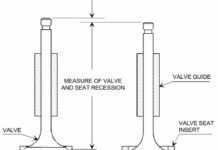Rolls-Royce announced on Monday that it has conducted its first tests using 100 percent sustainable aviation fuel (SAF) in a business jet engine. For the tests, the company used its Pearl 700 engine, which was developed for the Gulfstream G700. Testing took place at Rolls-Royce’s facility in in Dahlewitz, Germany.
“This test demonstrates once again that our current engines for large civil and business jet applications can operate with 100% SAF as a full ‘drop-in’ option, laying the groundwork for moving this type of fuel towards certification,” the company said. “At present, SAF is only certified for blends of up to 50% with conventional jet fuel and can be used on all current Rolls-Royce engines.”
The SAF used in the Pearl 700 tests was produced by Paramount, California’s World Energy, sourced by Shell Aviation and delivered by SkyNRG. According to Rolls-Royce, unblended SAF has the “potential to reduce net CO2 lifecycle emissions by more than 75% compared to conventional jet fuel.” The company also used unblended SAF for the first time in engine ground tests on a Trent 1000 engine last month.




































If it were not for this push to lower emissions, this kind of research would not be necessary. I suppose it is a reflection of the times in which we live, but given the fact that the US is now back into the Paris Accords, there will be a push toward this time of research. In my view, this is driven more by ideology than solid science. For every climate scientist who says there is global warming, there is one who also says there is not. Pick your side.
Absolutely expected comment and absolutely false! Owen, please question your sources of information. Even NASA says 97% of climate scientists agree. But apart from that, it’s just common (or at least it used to be) sense that if you belch tens of gigatons of greenhouse gasses into the atmosphere for a couple of hundred years it’s going to make a difference.
https://climate.nasa.gov/scientific-consensus/
https://ourworldindata.org/co2-and-other-greenhouse-gas-emissions
Having seen the aftermath of biodiesel used in automotive diesel engines, it quite frankly gives me a bad case of the willies just thinking about biofuels in airplanes. Granted it is a different process that should result in something more akin to a hydrogenated vegetable oil (not making myself feel a lot better with that thought) that shouldn’t result in the same acidification and bio-growth issues that harm diesel engines.
And of course it should be much tighter controlled in an aviation environment, many of the issues with automotive bio-diesel likely arise from lack of controls to enforce its limited 6 month shelf life. On the other hand, reading articles about how much more cost effective biofuel for jet engines would be if we could compromise a little on its freezing point also is a bit of a worry bead…